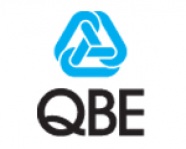How QBE is supporting businesses as they transition to Net Zero

Authored by QBE Chief Underwriting Officer Nick Hankin
QBE is proud to announce that it has become the first Australian insurer to join the UN-convened Net Zero Insurance Alliance (NZIA), a group of leading insurers and reinsurers that have pledged to help accelerate the transition to netzero emissions economies.
This is an important milestone for QBE. Being part of a global insurance and reinsurance alliance underscores our commitment to transition our own underwriting portfolio to net zero by 2050. It also further cements our ongoing commitment to help businesses decarbonise and adopt more sustainable business models.
Time to act
Climate change is one of the issues of our time. The physical risks of climate change are impacting the insurance sector in two main ways that are challenging to quantify – an increasing annual trend in the average cost of weather-related disasters and increasing variability of the likelihood and cost of extreme weather-related events. And while there is growing recognition of the need to reduce greenhouse gas emissions, the transition to a low carbon economy will be challenging and uncertain.
Despite some progress at last year’s COP26 talks in Glasgow, the world is on a path of 2.4C warming by the end of the century, far higher than the Paris Agreement target of limiting the global average temperature rise to 1.5C.
This is the critical decade to tackle climate change. COP26 reinforced the urgency to reduce global greenhouse gas emissions and transition to cleaner sources of energy. Now is the time to redouble our efforts and accelerate this process. We need to intensify the conversation and begin to understand how new technologies and business models will transform energy, transport and impact every commercial business we work with.
Critical role for insurance
As an essential part of the financial system, the insurance industry has a critical role to play in the transition to net zero. Insurance helps manage risk and develop resilience; however it is also an important enabler for innovation, providing much needed expertise on both the risks and opportunities that change presents for businesses
Insurers also have a unique vantage point. We already see how climate change is impacting our customers. Through our data and modelling, we understand how physical exposures are increasing, and how that risk will continue to grow over coming decades without sufficient policy response and collective action.
Insuring the transition
The transition to net zero is fast becoming the stand-out strategic and operational issue for our customers. Businesses are radically changing business models and investing in new technologies as they decarbonise their businesses and become more sustainable.
Our priority is to support our customers through an orderly transition. We want to understand the transition from a customer point of view and deploy our expertise and capabilities to support them as they respond to the challenges, but also the opportunities, that it will bring.
As an insurer, we can use our risk and analytical skills, our risk management capabilities, to help customers navigate their way to net zero. Imagine what we can do in terms of our data to help businesses understand how their risks are going to change, or how we can support them as they create more resilient supply chains, or make investments in new plants or technologies.
Investment in sustainable energy is steadily rising and the recent launch of our sustainable energies unit reflects the new wave of companies and energy systems that form part of a rapidly changing energy mix throughout the world. Projects we’ve seen include hydrogen, ammonia, hydro, solar, fixed and floating wind-power alongside carbon capture and sequestration. We are applying traditional insurance coverage to a new energy infrastructure that comes with very little historical data and loss profiles will likely be very different to what we have seen in the past.
Society expects more from organisations and consumers, investors and other stakeholders rightly expect genuine efforts to do better. We are sometimes asked how we might incentivise those we insure for doing the right thing. At such a critical juncture for the world our central role is to underpin the transition through risk transfer, risk management expertise and helping our customers build resilience and plan confidently for the future.
A framework for net zero underwriting
Central to our response to the transition is underwriting. QBE has a strong risk framework that guides our underwriting actions, and we are currently developing methodologies to underwrite the climate change transition.
This is where the NZIA will prove invaluable. A key objective for the NZIA is to create a common global standard to assess, understand and disclose the carbon intensity of underwriting. Using this common methodology and science-based targets, insurers will be able to set intermediate decarbonisation targets every five years with independently verified annual reporting.
Underwriting the transition is unchartered territory for insurers. We recognise that the world needs a sustained shift in energy supply away from fossil fuels and towards low carbon. The tragic situation in Ukraine and its impact on energy supply further underline the need to find alternative, sustainable sources of energy. Understanding the carbon intensity of our insureds is the first step to understanding their plans to transform and become greener. Only when we understand the transition pathway of customers can we fully support them with underwriting, risk management and claims capabilities.
Living up to the Paris Agreement
We take climate change seriously at QBE. We are committed to the Paris Agreement targets and have taken a number of actions to reduce the environmental impact of our own operations and of our business. In addition to joining the NZIA, QBE is already a signatory to the UN-convened Net-Zero Asset Owner Alliance, which will see QBE’s investment portfolio move to Net-Zero by 2050.
We are also proud of our innovative investment programme, Premiums4Good, which supports our drive towards sustainable investments, such as social impact bonds, green bonds and infrastructure. The ambition is to grow our impact investments to US$2 billion by 2025, a goal that we are well on our way to meeting.
QBE was also the first Australian insurer to join the RE100, pledging to source 100% of our energy from renewable sources by 2025. We are now more than 95% of the way towards that goal. The group is already carbon neutral and achieved our energy use, air travel and science-based emission reduction targets ahead of time.
QBE has additionally been substantially increasing its underwriting support for customers in the sustainable energy sector as part of our commitment to the energy transition pathway and in line with our corporate purpose of enabling a more resilient future.
Positive engagement
I have long been passionate about climate change, and I am pleased to say, I am not alone. I see incredible engagement and appetite among my colleagues at QBE and within the insurance industry around sustainability. People want to know that they are part of an organisation and an industry that cares and has a purpose around building resilience for our customers and society.
At QBE, I have sought to bring together all the different teams – underwriting, claims, risk, and modelling - to start thinking about the practical response to climate change. For me, this is key: Getting practical ideas and practical solutions and raising the capability and the knowledge about climate change within our business and the industry.
It comes back to the fundamental point: Insurance is a social good. For businesses and individuals to plan ahead and live their lives to the fullest, they need risk support and risk transfer. But we have all got to play our part in helping the world transition to net zero.
About QBE
QBE European Operations is part of QBE Insurance Group, one of the world’s leading international insurers and reinsurers and Standard & Poor’s A+ rated. Listed on the Australian Securities Exchange, QBE’s gross written premium for the year ended 31 December 2018 was US$13.7 billion.
As a business insurance specialist, QBE European Operations offers a range of insurance products from the standard suite of property, casualty and motor to the specialist financial lines, marine and energy. All are tailored to the individual needs of our small, medium and large client base.
We understand the crucial role that effective risk management plays in all organisations and work hard to understand our clients’ businesses so that we offer insurance solutions that meet their needs – from complex programmes to simpler e-trading solutions – and support them in minimising their risk exposures. Our expert risk management and rehabilitation practitioners focus on helping clients improve their risk management so that they may benefit from a reduction in claims frequency and costs.

